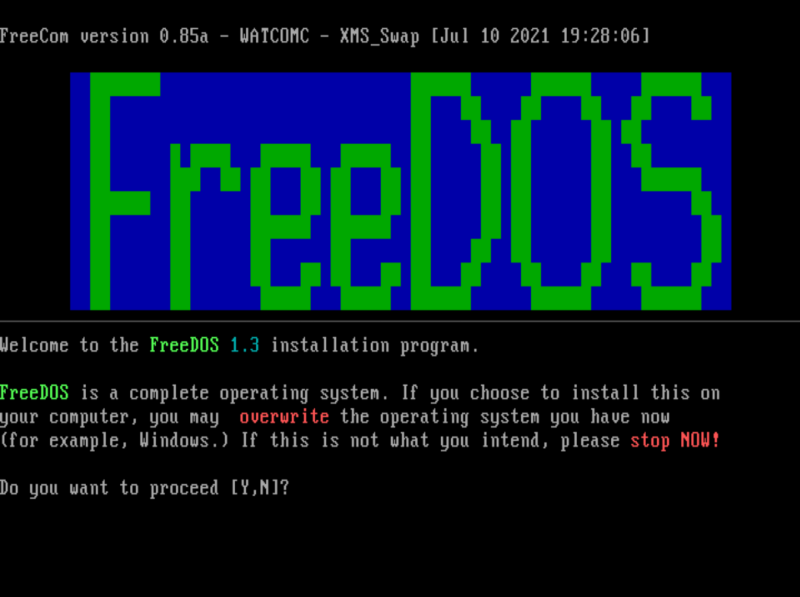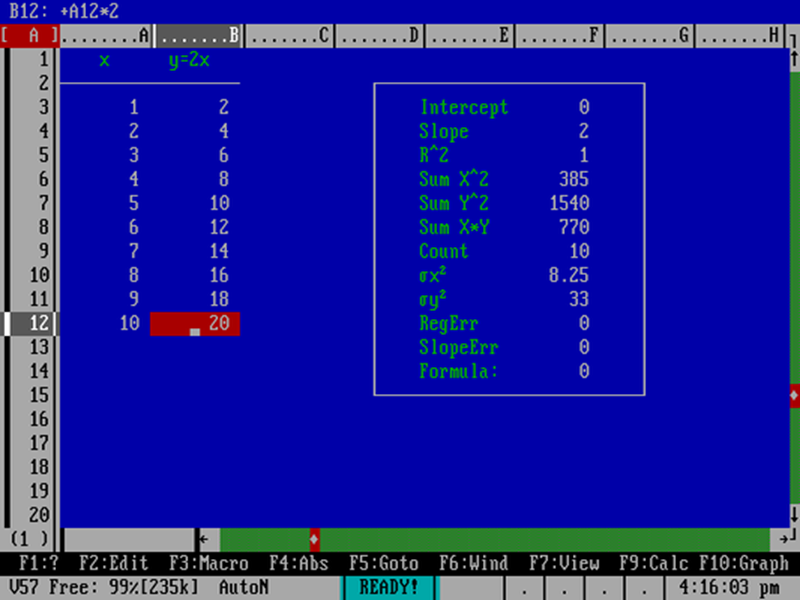
Andrew Cunningham
Two large issues occurred on the planet of text-based disk working techniques in June 1994.
The primary is that Microsoft launched MS-DOS model 6.22, the final model of its long-running working system that may be bought to shoppers as a standalone product. MS-DOS would proceed to evolve for a couple of years after this, however solely as an more and more invisible loading mechanism for Home windows.
The second was {that a} developer named Jim Corridor wrote a submit asserting one thing referred to as “PD-DOS.” Sad with Home windows 3.x and unexcited by the venture we might come to know as Home windows 95, Corridor needed to interrupt floor on a brand new “public area” model of DOS that would hold the normal command-line interface alive as many of the world left it behind for extra user-friendly however resource-intensive graphical person interfaces.
PD-DOS would quickly be renamed FreeDOS, and 30 years and plenty of contributions later, it stands because the final MS-DOS-compatible working system nonetheless beneath energetic growth.
Whereas it’s probably not usable as a standalone fashionable working system within the Web age—amongst different issues, DOS just isn’t actually innately conscious of “the Web” as an idea—FreeDOS nonetheless has an vital place in immediately’s computing firmament. It’s there for individuals who must run legacy purposes on fashionable techniques, whether or not it’s working within a digital machine or straight on the {hardware}; it’s additionally one of the simplest ways to get an actively maintained DOS offshoot working on legacy {hardware} going way back to the unique IBM PC and its Intel 8088 CPU.
To mark FreeDOS’ twentieth anniversary in 2014, we talked with Corridor and different FreeDOS maintainers about its continued relevance, the legacy of DOS, and the builders’ since-abandoned plans so as to add formidable fashionable options like multitasking and built-in networking assist (we additionally tried, earnestly however with blended success, to do a modern-day’s work utilizing solely FreeDOS). The world of MS-DOS-compatible working techniques strikes slowly sufficient that the majority of this info continues to be related; FreeDOS was at model 1.1 again in 2014, and it’s on model 1.3 now.
For the thirtieth anniversary, we’ve checked in with Corridor once more about how the final decade or so has handled the FreeDOS venture, why it’s nonetheless vital, and the way it continues to attract new customers into the fold. We additionally talked, unusual because it may appear, about what the longer term would possibly maintain for this inherently backward-looking working system.
FreeDOS continues to be kicking, at the same time as {hardware} evolves past it

Operating AsEasyAs, a Lotus 1-2-3-compatible spreadsheet program, in FreeDOS.
Jim Corridor
If the final decade hasn’t ushered in The Yr of FreeDOS On The Desktop, Corridor says that curiosity in and utilization of the working system has stayed pretty degree since 2014. The distinction is that, as time has gone on, extra customers are encountering FreeDOS as their first DOS-compatible working system, not as an up to date tackle Microsoft and IBM’s dusty outdated ’80s- and ’90s-era software program.
“In comparison with about 10 years in the past, I’d say the curiosity degree in FreeDOS is about the identical,” Corridor advised Ars in an electronic mail interview. “Our developer neighborhood has remained about the identical over that point, I believe. And judging by the emails that folks ship me to ask questions, or the brand new people I see asking questions on our freedos-user or freedos-devel electronic mail lists, or the folks speaking about FreeDOS on the Fb group and different boards, I’d say there are nonetheless about the identical variety of people who find themselves taking part within the FreeDOS neighborhood ultimately.”
“I get a variety of questions round September and October from individuals who ask, mainly, ‘I put in FreeDOS, however I don’t know find out how to use it. What do I do?’ And I believe these folks discovered about FreeDOS in a college pc science course and needed to be taught extra about it—or perhaps they’re already working someplace and so they learn an article about it, by no means heard of this “DOS” factor earlier than, and needed to attempt it out. Both means, I believe extra people within the person neighborhood are studying about “DOS” on the similar time they’re studying about FreeDOS.”

